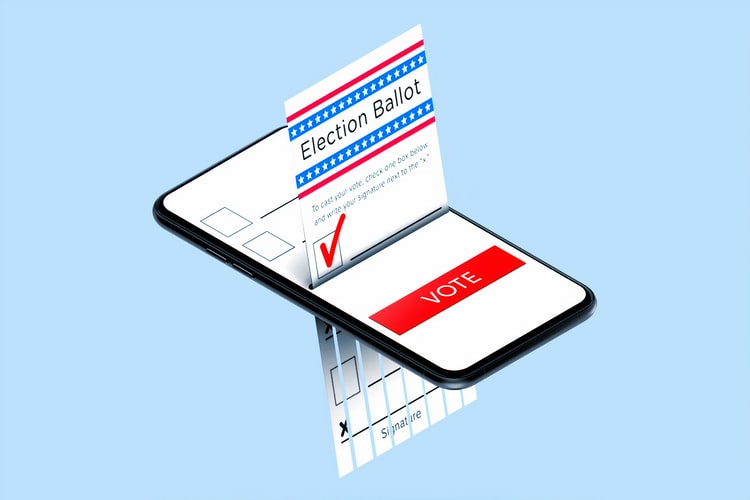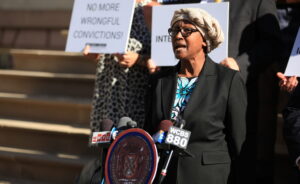
Image Credit: Morning Brew/Unsplash
United States – The practice of political organizing has seen a dramatic change in 2020. Organizers, who would have spent hundreds of hours knocking on doors and registering voters at events, are now unable to do so in a global pandemic. Many political campaigns and organizations, however, have been diligent about presenting a strong, digital presence. The Current Affairs Times spoke to six people working in organizing this election cycle, to discuss how they’ve adapted during the coronavirus.
Organizers have always been digitally active
Many of the folks we spoke to said they were active on digital platforms long before the arrival of COVID-19. Emmet Sandberg, Digital Director for NextGen America in Pennsylvania, said NextGen was in a “good spot” prior to the pandemic because the organization has always seen the value in digital organizing. Sandberg also said it is difficult to ignore the “innovative digital tactics” in this campaign cycle, especially with youth voter turnout “rapidly, rapidly changing.”
Field organizing is normally a common way to organize, too, but in the pandemic many campaigns and organizations have deemed it unsafe. Anthony J. Zarzycki, Digital Director for NextGen in Iowa, says field organizing typically consists of “having one-on-one conversations with someone in person.” NextGen engages in conversation with the public while knocking on doors, as well as through voter registration events. These conversations, however, are now being held digitally.
Some organizers said they miss being able to meet people in person. Sam Blatt, who is working with the Iowa Democrats to elect Eric Giddens and Pam Egli for Iowa State Senate, said meeting people at their doors and having real-time conversations with them is a very fulfilling aspect of being an organizer. Blatt also said that during the pandemic, it’s unsafe to be going out door-to-door, so digital organizing is another fulfilling way to motivate young voters.
NextGen Iowa‘s Press Secretary, Murphy Burke, told this publication about their virtual back-to-school event. The team held a virtual concert with performances from Lady Lamb, and local artist, Lily Detaeye.
After the concert, NextGen Iowa held a volunteer opportunity for attendees through a digital organizing tool called Reach. The tool has also been used by other campaigns including that of Alexandria Ocasio-Cortez. Reach allows volunteers to talk to people in their network about voting. Not only did NextGen Iowa engage attendees in voter registration, but the organization also helped 80 other people make a plan to register to vote. Organizers also said digital engagement is crucial to mobilizing communities of voters and volunteers to actively work with campaigns and organizations in a variety of endeavors.
How organizers create digital communities
Brittany Oliver, Communications Director for the Arizona Democratic Legislative Committee, said organizing is fundamentally about creating communities. She also said it involves building relationships with diverse populations. Oliver went on to say that the Arizona Democratic Legislative Committee has hosted virtual events such as happy hours, town halls, and meet-and-greets.
In adapting to strictly digital organizing, Oliver said they have had to structure their events differently — especially to engage those without reliable internet service or access to emails. However, the Arizona Democratic Legislative Committee has also looked into dropping off printed materials at neighborhood doors without having personal contact with the homeowners.
If Democrats gain two seats in the Arizona House and three seats in the Arizona Senate, both institutions will be majority-Democratic for the first time since 1966. “I’m excited to work really hard and elect Democrats to gain a majority,” Oliver said.
Many organizers described their digital initiatives as “meeting voters where they’re at.” Emma Tyler, State Director with NextGen New Hampshire said their organizers are getting creative at finding digital spaces to mobilize people. One organizer registered voters on Minecraft servers through the game’s chat function. Tyler said this is just one way organizing has become a creative endeavor during the pandemic.
Zarzycki, the Digital Director for NextGen in Iowa, also shared with this publication how he championed the use of social media as an engagement tool. During the Republican National Convention, Zarzycki noticed that there were people complaining about it on social media sites like Twitter or Reddit. Through the direct message (DM) function, Zarzycki reached out to them and told them of NextGen’s efforts. By DMing these people, Zarzycki recruited volunteers and confirmed they are registered to vote.
Sandberg, of NextGen America, was in charge of monitoring a Slack channel of volunteers for a “Day of Action” event that NextGen Pennsylvania hosted. As the 1,100 people called and texted around the state, Sandberg said he’d never felt more energized and enthusiastic about his organizing work. He added that the people NextGen Pennsylvania was contacting were all under the age of 40.
NextGen New Hampshire has also partnered with social media influencers to host virtual events. With The Sweet Feminists, NextGen New Hampshire held a virtual bake-off event on Instagram. They also held a virtual conversation with Amanda Seales of HBO’s Insecure. In hosting these types of events, NextGen New Hampshire’s Emma Tyler said they want to instill in young voters that their voices matter in this election.
The impact of digital organizing
Organizers also highlighted the accessibility digital organizing brings to the table. Zarzycki said that it’s easier than ever for young people to motivate their peers to get involved in this election. Thanks to digital organizing efforts, it is now possible to phonebank or call lists of people, even while lying in bed.
Zarzycki added that people can participate in text messaging campaigns from home. He continued saying that digital organizing efforts have enabled NextGen to reach out to folks in rural communities — areas that were previously unaware of the organization.
It’s hard to predict the future of organizing beyond this election cycle, most organizers said. Though many of them expressed their fondness for in-person campaign efforts, organizers also said it would be nearly impossible to ignore the impact digital organizing has had in the past several years. Sandberg mentioned that people who work in politics are inspired by the teams they work with — from activists to volunteers and everyone in-between.
How will future political campaigns and organizations approach organizing in a post-pandemic world? Will they continue to integrate digital organizing with field organizing?
Image Credit: Morning Brew/Unsplash
Sources:
The Current Affairs Times exclusively interviewed the following individuals for this article:
- Sam Blatt (Iowa Democrats)
- Murphy Burke (NextGen Iowa)
- Brittany Oliver (Arizona Democratic Legislative Committee)
- Emmet Sandberg (NextGen Pennsylvania)
- Emma Tyler (NextGen New Hampshire)
- Anthony J. Zarzycki (NextGen Iowa)
Lead developer and editor; legal/political reporter for the Current Affairs Times. World traveler. Mac 'n' cheese lover.



